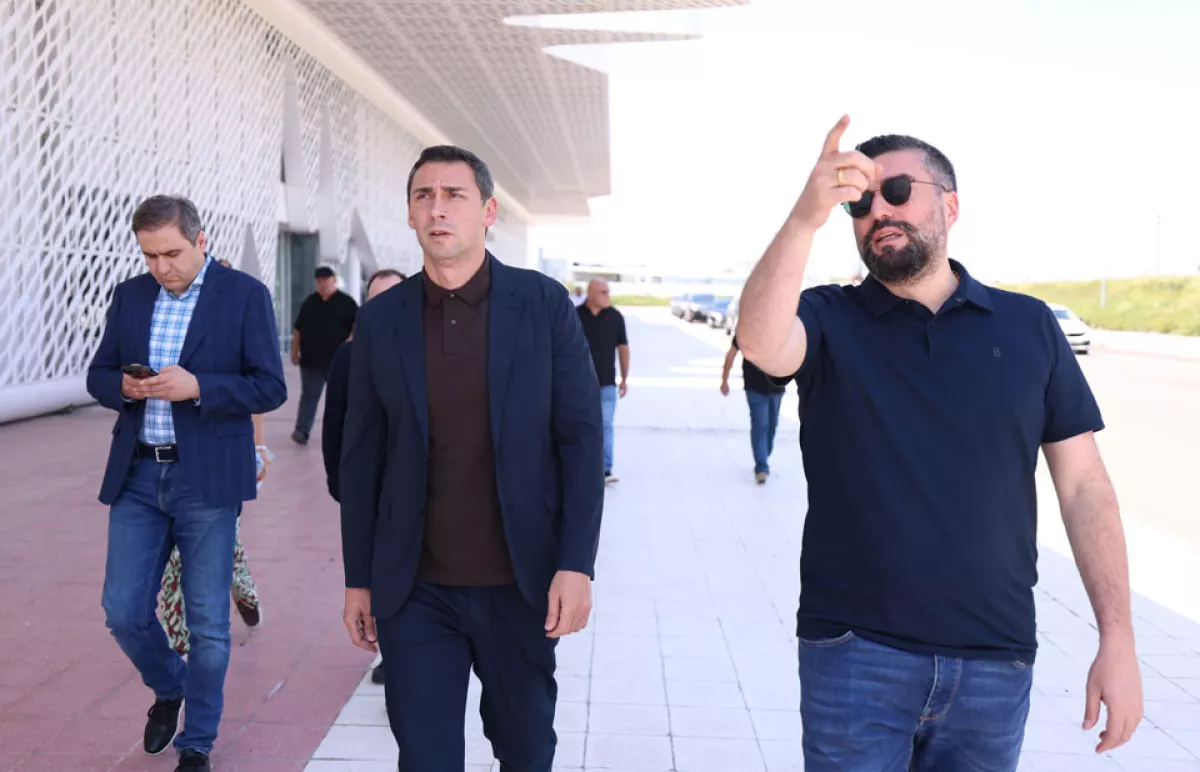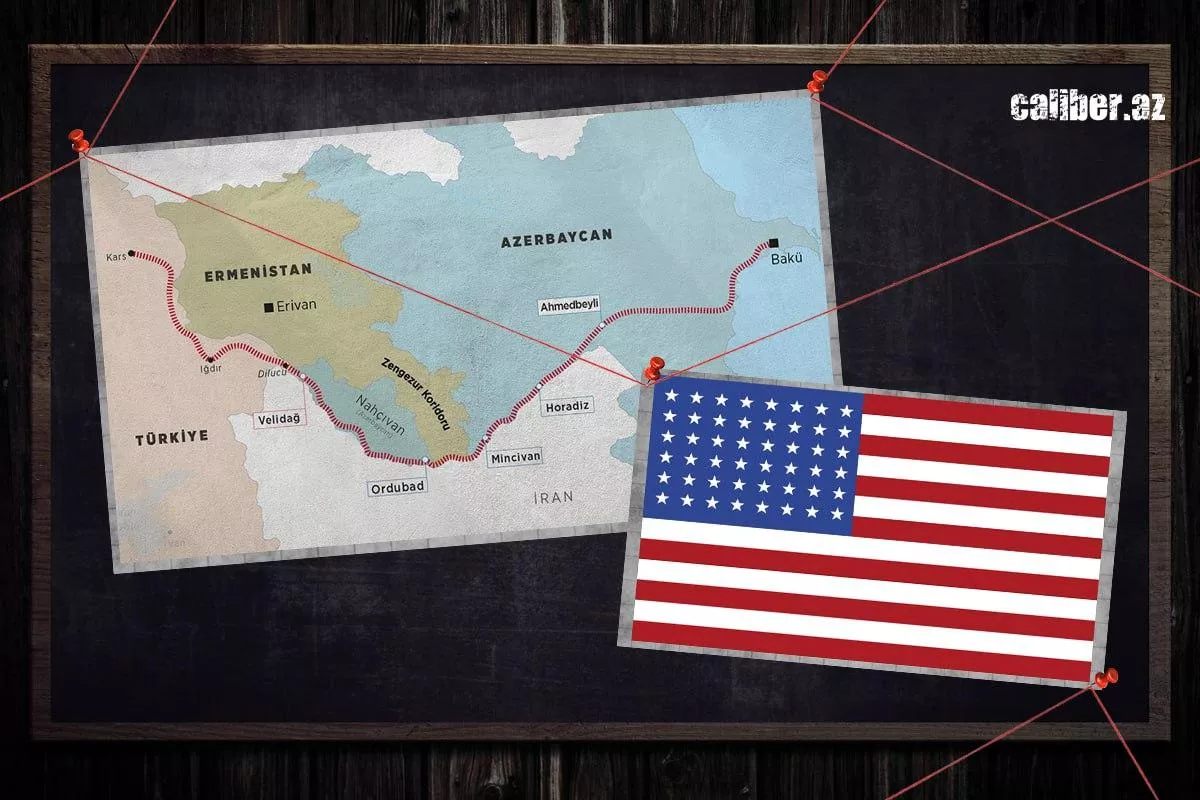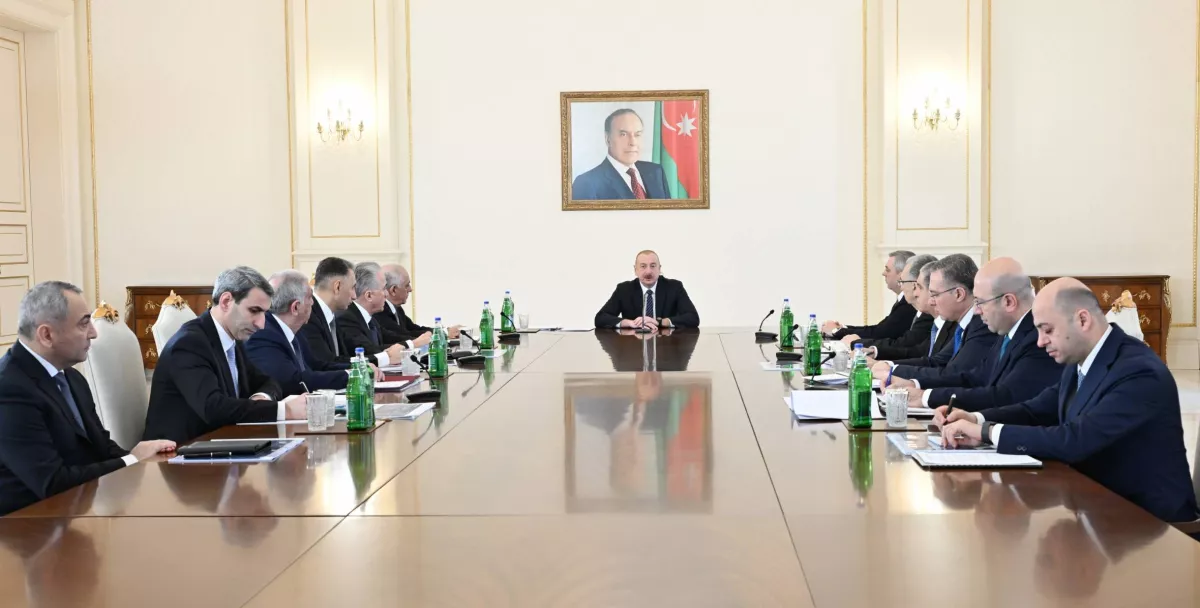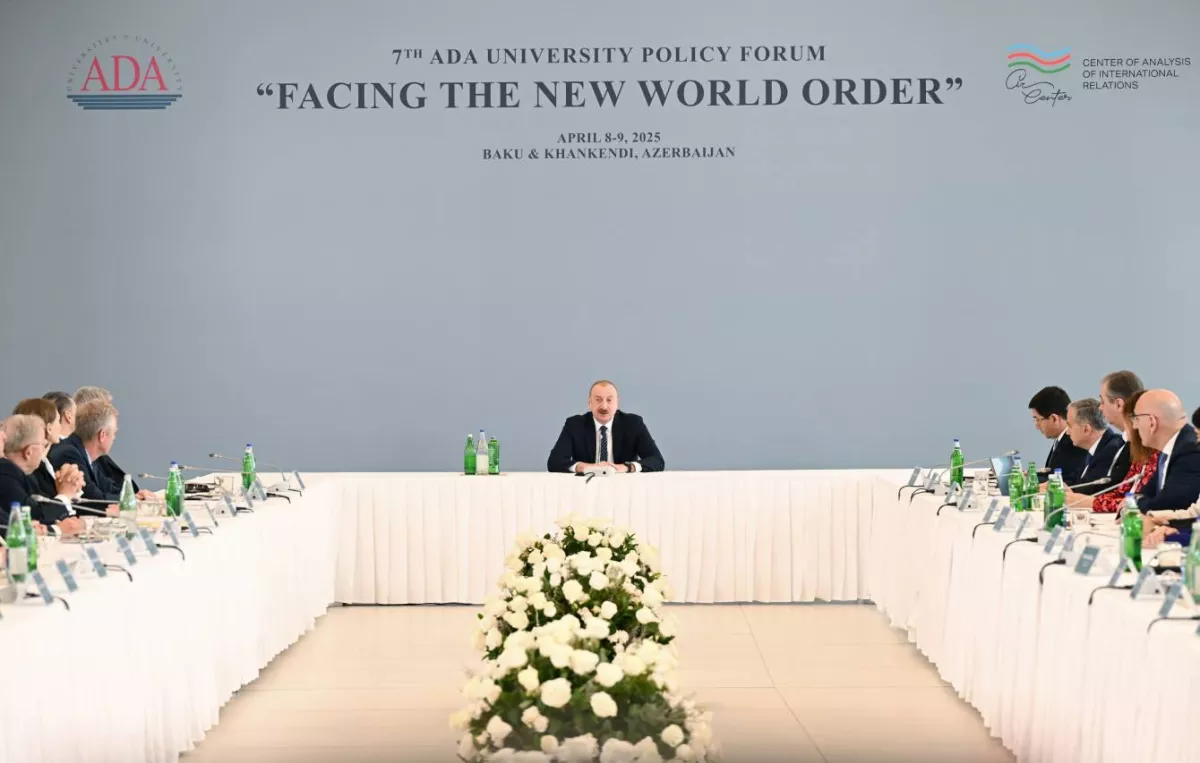Baku–Tbilisi–Kars: from “hopeless project” to Eurasia’s key transit artery Article by Vladimir Tskhvediani
Georgia plans to sharply increase freight transportation along the Baku–Tbilisi–Kars (BTK) railway line. This was stated by Lasha Abashidze, General Director of JSC "Georgian Railway" (GR), who visited the Akhalkalaki station, where a train from China arrived en route through Georgia and Türkiye to Europe.

"This year, freight volumes are already growing, and it is important for us to increase the volume of Chinese cargo from the Chinese direction to the Middle Corridor. Therefore, we came on site to make sure that these goods are being transported smoothly and are working to at least increase freight volumes along this route annually," noted Lasha Abashidze.
Currently, work is underway in Georgia to expand the capacity of the Baku–Tbilisi–Kars railway. The electrification of the main line has been fully completed, and the border station of Akhalkalaki has been reconstructed. It is expected that the capacity of the line will increase at least fivefold—from 1 million tons per year to 5 million, and in the future, even three times more, that is, up to 15 million tons per year.
Although the Baku–Tbilisi–Kars railway is still operating in test mode, the volume of freight transported along it in the first seven months of this year amounted to 250 thousand tons and, according to forecasts, will exceed 500 thousand tons by the end of the year.
It is clear that as soon as the full-scale operation of the Baku–Tbilisi–Kars railway begins, freight volumes will multiply significantly.
Interestingly, just as brilliant prospects for transit growth through Georgia are emerging, “experts” from the Georgian pro-Western opposition have begun to collectively “bury” the Baku–Tbilisi–Kars railway—much like a few years ago representatives of the Armenian lobby did, calling it “hopeless.”

The main thesis of the opposition is that, “with the blessing of the West,” the Zangezur corridor will be opened, and allegedly the United States will “get involved” there (these “experts” treat the proposal for the corridor to be leased by an American entity as a “fait accompli”). Therefore, they argue, all transit along the Middle Corridor will leave “pro-Russian” Georgia and instead go through “pro-Western” Armenia.
It is obvious that these opposition propaganda theses against the Baku–Tbilisi–Kars railway are “issued” from Brussels. After all, if China, the Central Asian countries, Azerbaijan, and Türkiye fully support the dynamic development of this railway and are interested in having the main volumes of transit along the Middle Corridor go through it, then from the West there has been intrigue against the Baku–Tbilisi–Kars project from the very beginning — and unfortunately, it has not stopped to this day.
The primary opponent of transit along this railway from the start was Armenia. It was in the interests of the Armenian side that Russia, the United States, and the EU opposed the project in one form or another. The Armenian lobby, even during the signing of the memorandum on the construction of the Baku–Tbilisi–Kars railway in February 2007, mobilized its supporters in Europe, the USA, and Russia, who in unison tried to “prove” that the project was allegedly “unviable,” “unwanted” by anyone except Türkiye and Azerbaijan, and supposedly “would never pay off.”
The same “experts” were outraged that the new railway “bypasses Armenia” and proposed to expedite the launch of the existing Gyumri–Kars railway line, but to do so without any de-occupation of the then Armenian-occupied Karabakh.
At that time, it should be recalled, there was no talk yet of the Middle Corridor. Few could imagine how promising it would turn out to be and how in-demand the Baku–Tbilisi–Kars railway, integrated into it, would become.
Meanwhile, from the very beginning of the railway’s construction, the Armenian lobby sought to ensure a negative attitude toward the project from international financial institutions. Problems were created from the start with financing the project that bypassed Armenia, but the construction of the railway nevertheless began in 2008. In fact, Türkiye, Georgia, and Azerbaijan started implementing the project at their own risk, despite the Armenian lobby’s attempts to “slow it down.”
As Azerbaijani President Ilham Aliyev noted, at one time the US leadership, prompted by the Armenian lobby, tried to hinder the implementation of the Baku–Tbilisi–Kars railway project.

“We encountered considerable resistance. I can now openly state that the United States opposed the project, primarily due to its pro-Armenian stance. The belief was that this project would exclude Armenia, which led to significant pressure on the Georgian leadership at the time to prevent Georgia from agreeing to it. Despite this, we engaged in negotiations with the Georgian side for several years, and ultimately, we succeeded in reaching an agreement,” Aliyev said on January 28 at a meeting dedicated to transport issues.
Opposition to the Baku–Tbilisi–Kars project and intrigue continue not only from certain political circles in the USA influenced by the Armenian lobby but also within the EU. Moreover, as soon as the prospects of opening the Zangezur corridor were discussed, the EU leadership immediately began promoting the idea of redirecting all transit along the Middle Corridor through Armenia, effectively “bypassing” Georgia, including the Baku–Tbilisi–Kars route.
By lobbying to redirect transit through Armenia, which has become “pro-European,” the EU seeks to “punish” Georgia for not yielding to Brussels’ diktat and for defending its national sovereignty.
Such behaviour by the EU leadership provoked a harsh reaction from President Ilham Aliyev. In his speech on April 9, 2025, in Baku at ADA University during the international forum “Facing the New World Order,” the President of Azerbaijan compared the European Commission’s attitude toward Georgia to the behaviour of colonisers.

“Frankly speaking, I was surprised when I was informed about the comments of the President of the European Commission, Madame Ursula Von Der Leyen, which she made in Uzbekistan, at the Summit of Central Asian leaders with the leadership of the European Commission, when she was talking about opening the borders between Azerbaijan and Armenia, and Armenia and Türkiye, in order to facilitate the Middle Corridor, as they call it in Europe - the Global Gateway. That was very strange, because this corridor exists, and Armenia plays no role in that. We can understand the feelings of European bureaucrats towards Armenia, but you cannot ignore the map. And we, in Georgia and in Azerbaijan, have provided all those facilities, which today help Europeans communicate with Central Asia - Georgian seaports, the Baku-Tbilisi-Kars railroad, the Azerbaijani seaport in Alat, Caspian shipping, which is instrumental in transportation. All that is ignored - how much money was invested? All that is ignored; they only want to open the border between Türkiye and Armenia, open the border between Armenia and Azerbaijan. What does Europe have to do with that? It's none of their business. Relations between Türkiye and Armenia, and Azerbaijan and Armenia - the longer the distance between the European Union and these issues, the better for everyone.
But there was not a single word about Georgia. As if Georgia did not exist. This is unfair, and the attitude towards Georgia's internal process in the European Commission is absolutely unacceptable. This is the behavior of colonialists. They try to look at the will of the Georgian people through the principles of a colonial past. This is absolutely unacceptable, and the people of Georgia know that we are with them, and the government of Georgia knows. The internal issues of Georgia must be resolved by the Georgian people, not by bureaucrats from Brussels. So, with respect to all that, we need to strengthen our partnership between Georgia and Azerbaijan,” Ilham Aliyev said at the time.
It is also understandable why the West is interested in redirecting transit along the Middle Corridor exclusively through the Zangezur corridor in light of the recently announced idea that the United States, through its entities, wants to lease a 32-kilometre section of the Zangezur corridor along the border with Iran for 100 years.
It is not hard to guess that if, at the same time, the West manages in one way or another to either slow down the growth of transit through Georgia or stop it altogether — by “revolution,” opening a “second front,” or some similar method — then it would gain monopoly control over the Middle Corridor through a compliant Armenia. However, such an adventure is completely unnecessary for China, Türkiye, or the Central Asian countries.
Türkiye, Azerbaijan, and China are interested in seeing transit through Georgia grow, along with the increasing importance of the Baku–Tbilisi–Kars railway. Georgia’s sovereignty and its ability to defend its national interests are the best guarantee that external geopolitical players will not be able to interfere with the operation of the Middle Corridor.
At the same time, the Zangezur corridor is by definition not a competitor to the Baku–Tbilisi–Kars railway — it has entirely different tasks, primarily ensuring the logistical connection of Nakhchivan with the main territory of Azerbaijan.
By Vladimir Tskhvediani, Georgia, exclusively for Caliber.Az








